Glossary
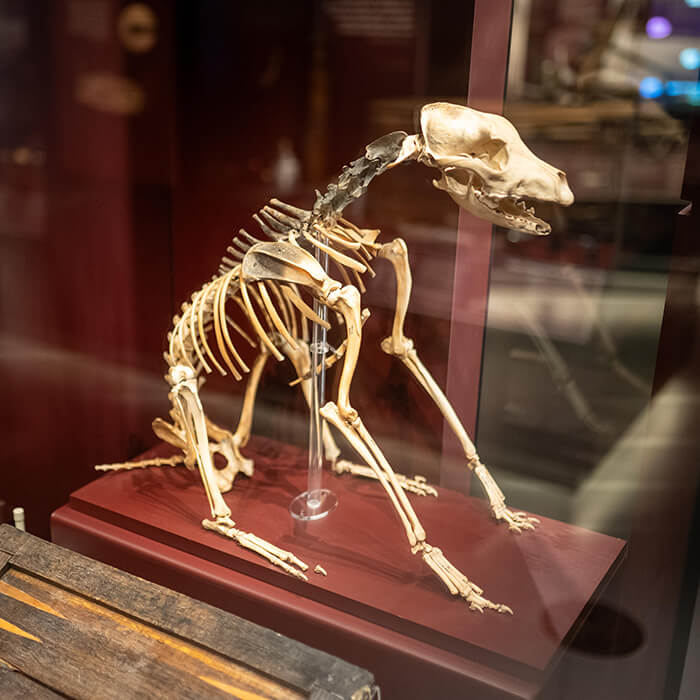
Alloy - A metal produced by combining two or more other metals.
Anoxic - An environment in which there exists very limited oxygen. Some bodies of water such as the Baltic sea are notably anoxic.
Archaeology - The study of human history and activity through the recovery of artefacts and items from the past.
Baltic Tolls - Medieval and Early Modern maritime trade in the Baltic region of northern Europe operated through the Baltic and North seas, and was dominated by a network of free cities known as the Hanseatic League. The many narrow straits in the area resulted in many tolls which, owing to the international nature of the trade, were payable in currencies from all around Europe.
Basque - The area and culture of the western Pyrenees mountains, encompassing parts of modern-day northern Spain and southern France. Historically the broad location of the Kingdom of Navarre until its incorporation into Spain in 1512.
Biscuits - Coins that, following long periods underwater, have developed concretions through corrosion that encompass the whole coin alone. The result is a rocky coin-shaped item known as a biscuit.
Blank - A plain metal disc, before the act of striking turns it into a coin.
Bounty - A signing-on incentive offered to entice new Royal Navy recruits, sometimes exceeding several years’ wages paid as a lump sum prior to the voyage.
Britannia - A depiction of Britain as a female figure, often visualised carrying a spear or trident and a shield, and wearing a helmet. Britannia is a figure that has come to represent the British nation and its maritime links, appearing on the reverse of the lower denomination coins for almost 300 years and then on the 50p piece through to 2008. She is a figure with a long, enduring history, evolving and changing with the country that she has come to represent.
Bronze - An alloy consisting of primarily copper (usually at least 85%) mixed with tin (usually at least 12%), but also sometimes containing other metals such as zinc or nickel.
Bun Penny - A British bronze penny issued 1860 and 1894, during the later years of the reign of Queen Victoria. The first bronze penny issued, it took its name from the engraver Leonard Wyon’s portrait of Queen Victoria with her hair gathered into a bun.
Bullion - The basic weight value of metal, typically gold and silver, before it has been struck into coins with denominational value.
Burgundy/Burgundian - A wealthy and powerful European state in the late fourteenth and fifteenth centuries, ruled by the House of Valois. Equivalent in scale to a kingdom, Burgundy encompassed regions of modern-day France (including, but not always, the Duchy of Burgundy), Luxemburg, Belgium, and the Netherlands.
Carat - In terms of precious metal, a measure of the purity of gold or silver. Pure gold is measured at 24 carats, although 22 carat gold, or 917.6 gold, was more frequently preferred for coinage owing to being more resistant to wear and tear.
Cargo - The goods carried on a ship, often for sustenance, trade, or transportation.
Cartwheel Penny - Very large copper pennies, all dated 1797, struck by Matthew Boulton at the Soho Mint in Birmingham. These coins gained their name from their broad diameter and distinctively thick rim.
Charter - A Royal Charter is an institution of incorporation granted by the monarch. In the fifteenth through seventeenth centuries in particular, royal charters were used to form chartered companies, such as the East India Company and the Royal African Company.
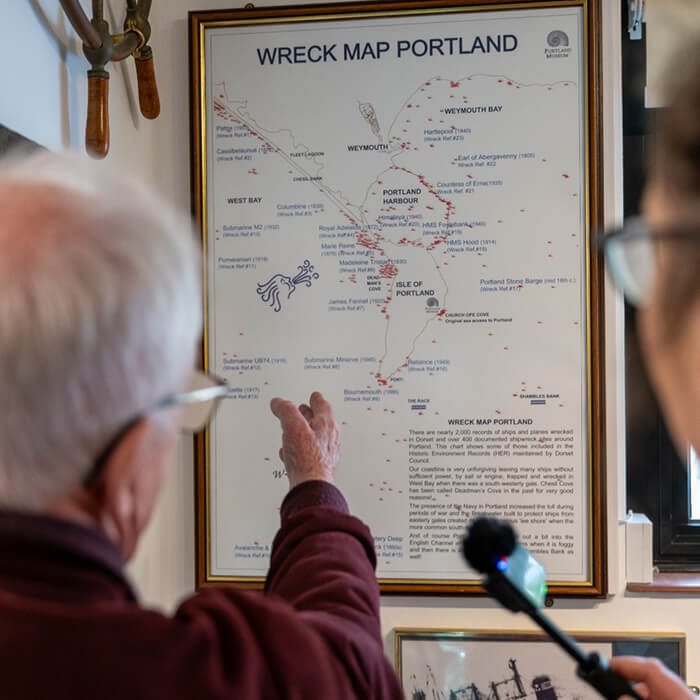
Chloride - A chemical compound or molecule that contains a chlorine ion, frequently produced when a metal such as silver reacts with chlorine to produce a crystalline or salt-like compound.
Concretions - Hard lumps of material that can be formed when an object corrodes underwater and the product of that corrosion, such as rust, combines with underwater sediments to make a concrete-like substance that gradually consumes the object and others nearby.
Conservation - The processes by which objects uncovered via archaeology are preserved, protected and stabilised as they are moved between environments.
Corrosion - A chemical process in which a metal reacts to the environment around it in an attempt to convert into a more chemically stable form. For example, the corrosion known as rust forms when iron is exposed to oxygen and moisture.
Corsair - Sometimes used as synonymous with both ‘pirate’ and ‘privateer’. Can refer specifically to French privateers, who conducted piracy on behalf of the French Crown, or also to Barbary Corsairs, Ottoman privateers who conducted piracy on behalf of the Ottoman Empire.
Cowry Shell - Small shells from sea creatures, which have historically been used as a form of currency in parts of Africa, Asia, the Americas, and Oceania.
Deputy Master of the Mint - Following the amalgamation of the role of Master of the Mint into the office of the Chancellor of the Exchequer, the Deputy Master became from 1870 the de-facto most senior figure in the Royal Mint. This position is today held by the Chief Executive of the Royal Mint.
Devaluation/Debasement - The lowering of value of a country’s currency, historically achieved with gold and silver currencies by reducing, or debasing, the amount of precious metal within coins without changing their denomination.
Differential Rates - Historically, markets in different parts of the world placed different values on goods to one-another, based on local supply and demand. International trade in the sixteenth to eighteenth centuries exploited these differences to make profit on a global scale.
Drake, Sir Francis - An English explorer and privateer, who completed a circumnavigation of the globe between 1577 and 1580. Drake operated as a privateer under the blessing of Queen Elizabeth I.
East India Company - Founded in 1600, this trading company facilitated trade between England and the Indian Ocean. It grew to be one of the largest of its kind in the seventeenth and eighteenth centuries, controlling tracts of land and large armies in modern-day India.
Écu - A French denomination, struck in gold between the twelfth and sixteenth centuries, and then in silver until the French Revolution of the late eighteenth century. Its value changed considerably, ranging from half a pound at inception to over five pounds.
El Dorado - A popular legend of a great hidden wealth of gold, or a gold city, somewhere in the Americas, which inspired expeditions and colonisation of the Americas during the sixteenth- and seventeenth-centuries.
Elephants’ Teeth - A common term used in records to refer to ivory, the hard, white organic material from the tusks of animals. One of the luxury commodities frequently traded by the Royal African Company.
Fence - As a verb, the act of trading in stolen goods. As a noun, an individual known to purchase stolen goods.
Free Diving - The act of diving underwater without the use of breathing apparatus.
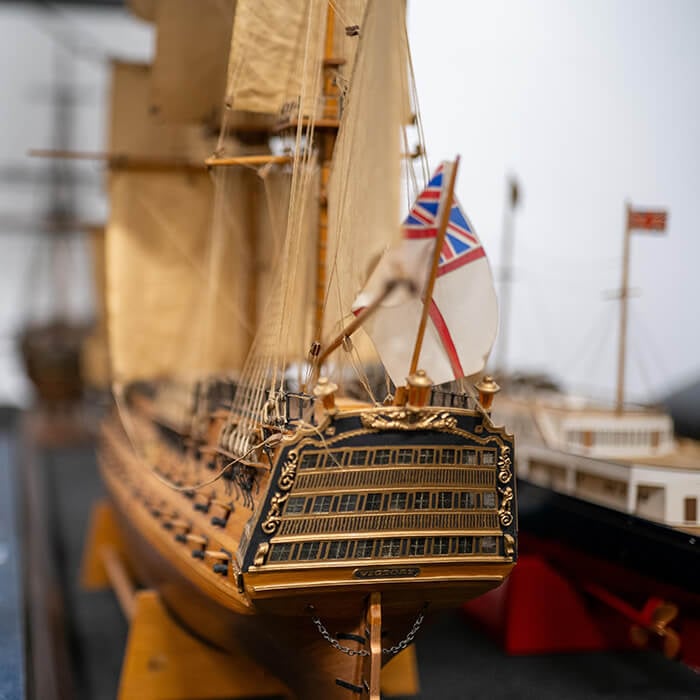
Fine Gold - Sometimes known as 999 gold, or 24 carat gold, fine gold is as close to pure gold as is possible, and was used only infrequently in historic English coinages, owing to its high value and susceptibility to wear and tear.
Gold Dust - The form in which much gold was traded from Africa, via the Royal African Company. A broad term, anything from powder to small panned chunks or shards might have been regarded as gold dust.
Gold Panning - A process of gold extraction by which small amounts of gold can be removed from silt or water by sieving away the excess to leave behind gold deposits.
Guinea - An English and British gold coin, first struck in 1663, and which settled on a denominational value of 21 shillings, or just over one pound. It gained its name from being struck primarily in West African gold, obtained by the Royal African Company throughout the late seventeenth century.
Heyn, Piet Pieterszoon - A Dutch admiral and a privateer operating under the authority of the Dutch Republic. Hein is best known for capturing a Spanish treasure fleet in 1628, raiding so great an amount of treasure that it caused a global spike in the price of silver.
House of Stuart - The Royal House that held the throne of Scotland from 1371 and of England from 1603, until 1714, excepting the period of Commonwealth Republic between 1649 and 1660.
Iconography - Visual images and symbols used in a piece of artwork, often identifiable and interpretable through cultural context.
Impressment - Recruitment by force, through which potential sailors would be made to join the Royal Navy.
Isotope Analysis - Scientific analysis of the atoms within materials, which can reveal details about the environment and geographical region in which they were produced.
Jolly Roger - The name of the ‘skull and crossbones’ flag prevalent in popular culture as that flown by pirate ships. The name dates back to Charles Johnson’s 1724 book, ‘A General History of the Pyrates’.
The King’s Shilling - A slang term for the payment offered to soldiers and sailors for work in the English and British armed forces. ‘Taking the King’s shilling’ was to accept payment for such service.
Letters of Marque - A government-issued licence that, in the Age of Sail, would authorise an individual to become a privateer and conduct sanctioned piracy upon enemies of the state.
Market - In terms of historic international trade, a specific geographical trade region in which goods are valued based on local supply and demand. Differences in silver prices between Europe and Asia in the sixteenth- and seventeenth-centuries can be attributed to the supply differences between these markets.
Master of the Mint - Prior to 1870, the title of the most senior officer of the Royal Mint. Since 1870, this title has been amalgamated into the office of the Chancellor of the Exchequer, who still holds the title today.
The Mary Rose - An English Tudor warship of Henry VIII, which launched in 1511 and sank in 1545. The wreck was recovered in 1982, and is now on display as part of the Mary Rose Museum.
Mechanisation - In coinage terms, the point at which production of coins moves from primarily hand-striking to machine-led striking. In England, the Restoration in 1660 heralded the advent of coining machinery such as the screw press, and the introduction of a mechanised coinage.
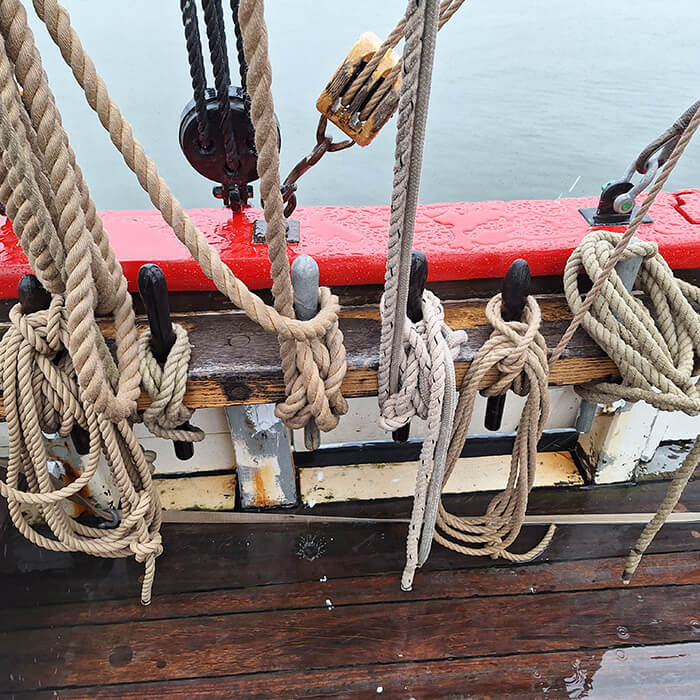
Minerva - The Classical Roman goddess of wisdom and justice, equated with her Greek counterpart, Athena. Minerva featured on the Roman denarius, or penny.
Moneyer - Historic job title for a person who produces coins.
Nelson, Horatio, 1st Viscount - A British flag officer in the Royal Navy, best known for his decisive naval victory at the Battle of Trafalgar in 1805. His victory is notably commemorated by Nelson’s Column, in Trafalgar Square, London.
The Newport Medieval Ship - A mid-fifteenth century merchant ship, discovered in Newport in 2002. Thought to be Basque, and involved in the wine-trade with Portugal and Burgundy, the ship capsized during drydock repairs in Newport.
Pattern - In coinage terms, a fully-realised test piece, exemplifying how a coin might look if produced. Often produced to a very high standard, and frequently one-off pieces, patterns are used to evaluate the viability of a proposed coin.
Paying Off - In modern terms, the act of settling an outstanding debt. Historically, the point at which sailors were paid for their work was upon the completion of the voyage and their departure off the vessel, where they were given a prize voucher exchangeable in London for their wages.
Petit Blanc - A french silver coin in common circulation throughout the fifteenth century. A coin of this sort was found in the keel of the Newport Ship.
Piece of Eight -The Spanish silver dollar, struck widely from 1497, became the first global currency in the sixteenth century. Valued at eight Spanish Reales, the coin was sometimes known as the Piece of Eight and was used heavily in Caribbean trade, lending it a status in popular culture as the money used by pirates.
Pirate - An individual who captains or crews a ship engaged in unsanctioned maritime robbery, usually for their own gains. In popular culture, known (often incorrectly) for burying treasure, keeping parrots, and saying “Arrr!”.
Privateer - A private individual who captains or crews a ship engaged in officially-sanctioned maritime robbery during wartime, operating under the licence granted by a Letter of Marque. Somebody engaged in officially-sanctioned piracy, ostensibly for the benefit of a government, although the line between ‘pirate’ and ‘privateer’ was frequently blurry at best.
Prize Money - Prize offered to captains and sailors of the Royal Navy for the capture and delivery of an enemy ship during wartime.
Privy Council - A body of advisors to the monarch of the United Kingdom and, historically, England, responsible for assisting the sovereign with enacting their will. The Privy Council was abolished briefly prior to the Restoration of the Monarchy, and prior to the eighteenth century was frequently composed of a small group of trusted advisors.
Purser - The officer on a ship responsible for handling the ship’s money and valuable goods, keeping the vessel suitably restocked at port, and recording both the wages of sailors and the vessel’s trade transactions.
Quinine - A medicine created from the bark of the cinchona tree and used to treat malaria, a disease historically common in parts of central and southern Africa. The advent of quinine enabled European colonisers to establish more significant inland colonies throughout Africa in the seventeenth through nineteenth centuries in the ‘Scramble for Africa’.
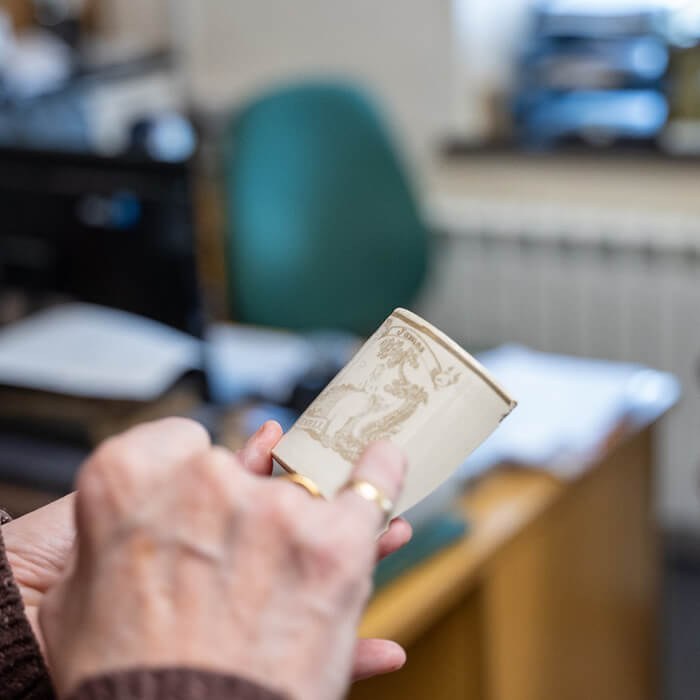
Receiver of Wreck - A governmental official who deals with cases of wrecks or salvage being found, to ensure that the interests of both the owner and finder are taken into consideration.
Restoration - The Restoration of the Monarchy, or the Stuart Restoration, in 1660 marked the point at which eleven years of English republican rule, led primarily by Oliver Cromwell, ended with the return from exile of Charles II.
Roettiers - A notable seventeenth century family of engravers and medallists, whose connections with Charles II during his period of exile led to the establishment of John Roettiers as one of the chief engravers of the Royal Mint at the time of the Restoration of the Monarchy.
Royal African Company - An English trading company established in 1660 by the House of Stuart, and initially chartered as the Company of Royal Adventurers Trading into Africa, this company facilitated trade between the west coast of Africa, the Caribbean, and England. Initially intended to import gold and ivory from Africa, the Company grew to be one of the largest involved in the North Atlantic trade in enslaved people.
Royal Mint Advisory Committee (RMAC) - Founded in 1922, this official United Kingdom government body reviews new designs for coins, medals, seals, and decorations, making recommendations as the arbiters of aesthetic design on the coinage.
Salvage - The items and materials recovered from a wreck or from the ocean, which may be assigned a monetary value and which have a specific owner.
Scramble for Africa - The rapid colonisation of much of Africa by Western European colonisers throughout the late nineteenth and early twentieth centuries. Prior to this point, and the widespread use of quinine, areas of the tropics had been inaccessible to colonisers owing to the adverse effects of diseases like malaria.
Shilling - A unit of account since Medieval times which, at the beginning of the sixteenth century, was introduced as a silver coin. Convenient in size and value, at one twentieth of a pound, the shilling became an integral part of the British pre-decimal currency system.
Smuggling - The illegal transportation of objects or goods, either to transport forbidden goods in or out of a location, or to avoid paying taxes and charges associated with the transportation of legal goods.
Spithead Mutiny - A 1797 violent rebellion by sailors of the Royal Navy, in pursuit of increased pay.
Sovereign - A large English gold coin struck from 1489 to 1603 with a bullion value of twenty shillings or one pound. This highly-detailed, and much-debased, gold coin was revived in 1817 to replace the guinea, bearing a nominal value of one pound and becoming known in the nineteenth and twentieth centuries as one of the most reliable international coins.
Spanish Empire - From the earliest colonisation of the Americas in 1492 through until the late nineteenth century, Spanish territorial control stretched across the globe for centuries.
SS Gairsoppa - A British cargo steamship, built in 1919 and sunk in the Battle of the Atlantic in 1941, during World War Two, while carrying over seven million ounces of silver bullion.
Tooling - In coinage terms, the various tools and punches used to strike coins, or to produce the dies used to strike coins. Historic tooling, such as medieval dies, features coin designs engraved directly onto the pieces themselves, while more modern tooling is frequently made in stages, allowing for small design adjustments between tools before a final die is produced.
Touchpiece - A coin used in the medieval ‘touching ceremony’, by which the monarch’s god-given power would be channelled through a coin - most frequently a gold angel - in pursuit of curing scrofula, a form of tuberculosis.
Trade Route - A regularly-used route, by which goods and money are frequently moved internationally across oceans and continents.
Trade Vessel - A ship undertaking a voyage to conduct private trade, on behalf of individuals or companies, by sailing goods across the world for sale in international markets.
Treasure Island - An 1883 pirate adventure novel by Robert Louis Stevenson, which became the foundation for a great many pirate myths in popular culture today.
Treasure Fleet/Treasure Ship - A system of shipping convoys used primarily by the Spanish Empire to transport luxury goods including gold and silver from colonies in the Americas back to mainland Europe. The ships containing the treasure would frequently be accompanied by warships for protection.
Triangle Trade - In general terms, a trade network by which goods are moved between three ports to ensure profit at each leg of a cyclical journey. The term is more frequently used with reference to the transatlantic trade of enslaved people in the sixteenth through nineteenth centuries, by which manufactured goods would be brought from Europe to Africa, enslaved people from Africa to the Americas, and luxury goods from the Americas to Europe.
Weights - Measuring devices and scales, vital for trade when gold and silver coins held international value based on their bullion weight.
Wreckage - Under United Kingdom law, wreckage includes material from shipwrecks, items that are lost at sea, and sea-waste such as whale carcasses - all of which have owners.
